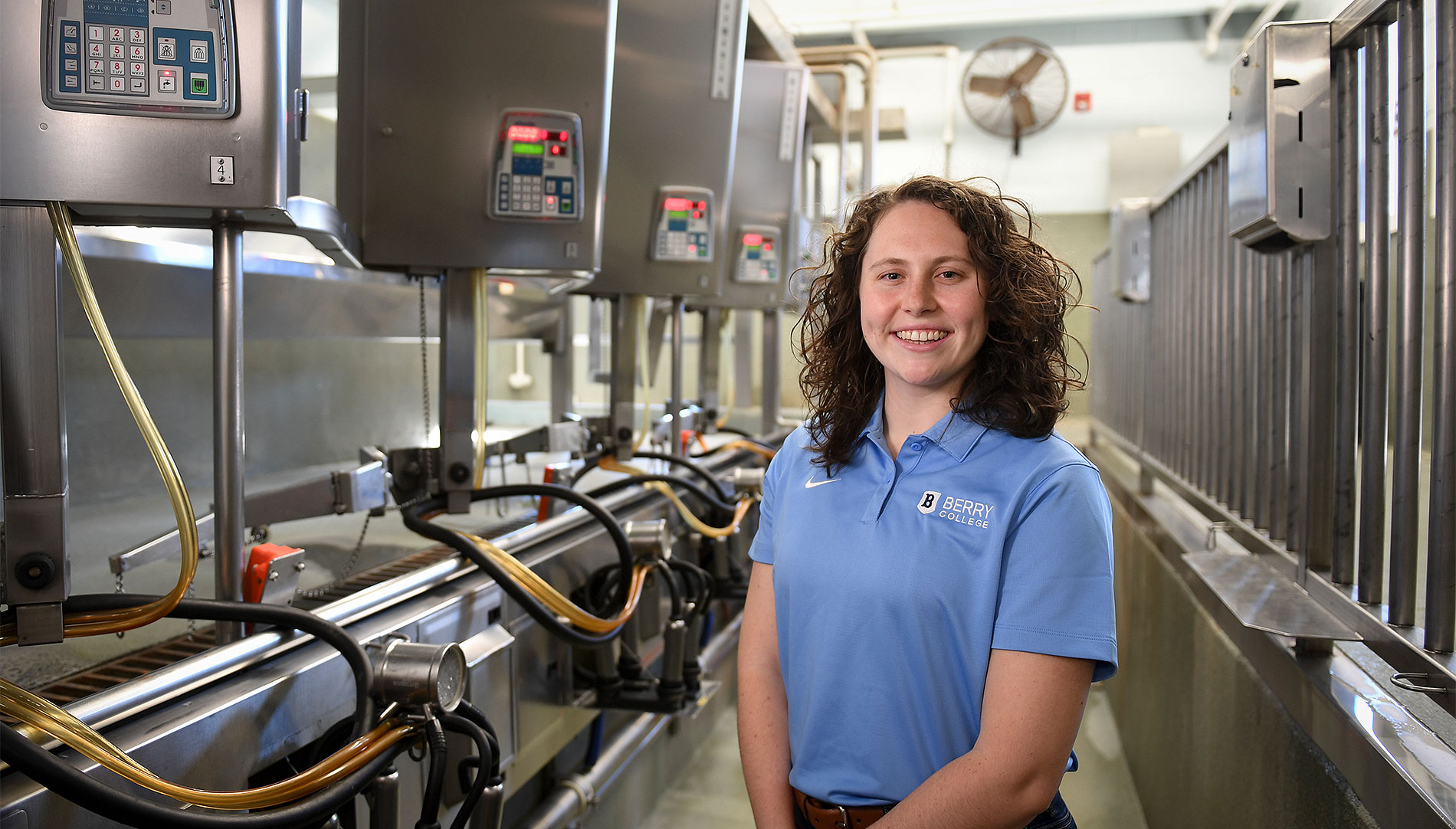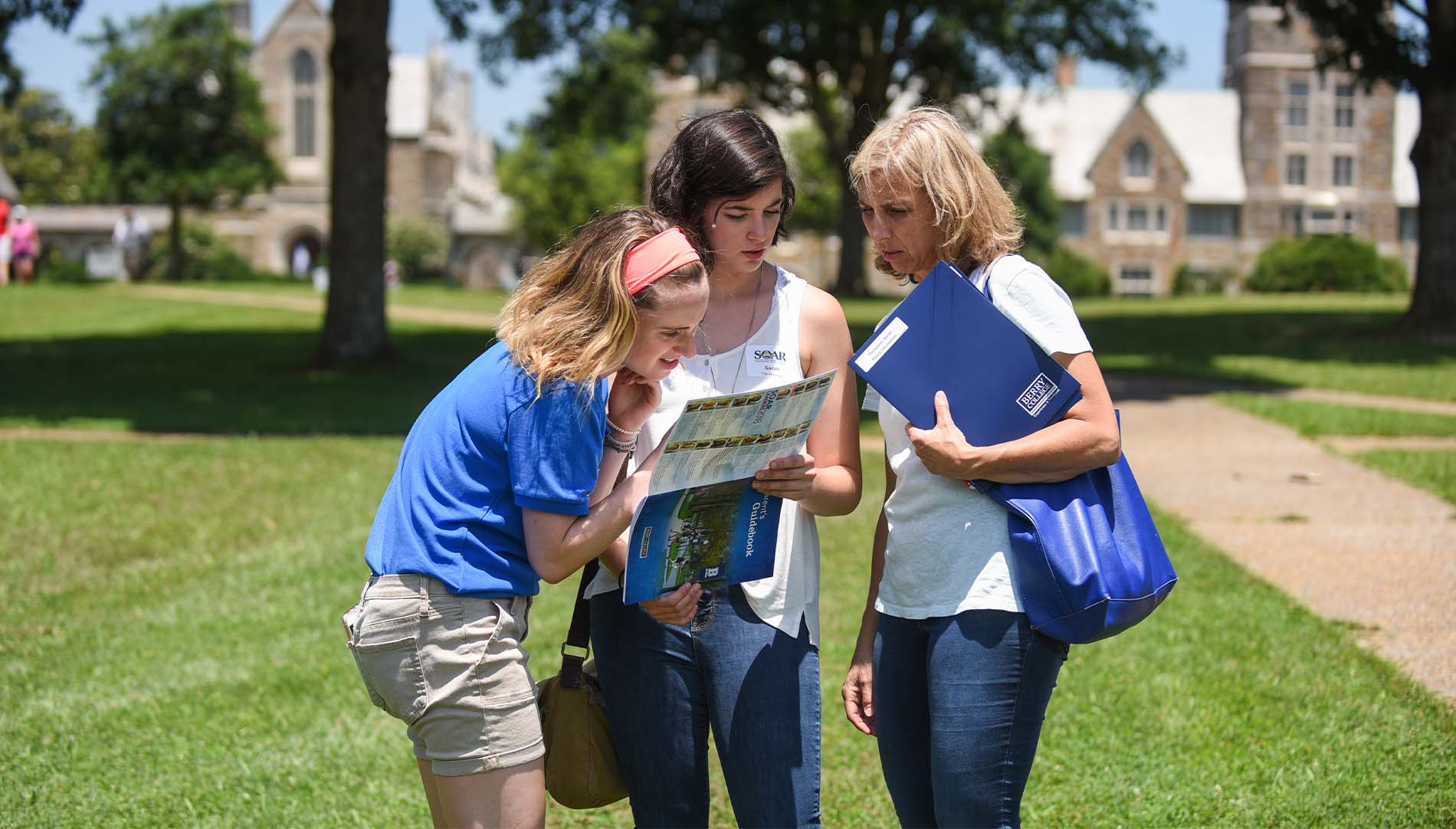Anna Naguszewski transferred to Berry her sophomore year and never looked back, saying, “It has been the best decision I have made.” Though she started out at a large state university majoring in history, technology and society, Anna researched other majors and discovered animal science. “I was drawn to the animal science program at Berry because of the amazing hands-on experiences it provides as well as the incredible faculty,” she says.
Anna is attending the University of Georgia College of Veterinary Medicine, with the goal of becoming a public health veterinarian. An internship with the Georgia Department of Agriculture — inspired by a career seminar at Berry — cemented her decision to follow a career path that combines three high-level interests: animals, public health and the environment. “Assisting with the development of a foreign animal disease outbreak response protocol and an animal disease traceability project, as well as following several animal industry inspectors and public health veterinarians, I discovered that public health veterinary medicine would allow me to enrich the lives of both animals and humans,” she explains.
“Berry has prepared me well for graduate school and my career by exposing me to both the production and veterinary aspects of the field,” Anna says. “I have taken numerous classes in anatomy, physiology and disease, as well as production systems.” One of her favorite courses is a sheep systems class that covers sheep health, vaccination strategies, breeding plans and the equipment required for care of the animals. “We even created our own plans to operate a sheep farm using the material we learned throughout class,” she says.
Berry’s One Health minor gives Anna a competitive edge when applying to veterinary school. The first undergraduate program of its kind, this program explores the relationships between humans, animals and the environment as they relate to population health. “I have learned how the social sciences, such as economics, sociology and psychology, can work together with the sciences to improve the health of animals, humans and the environment,” Anna says.
As Anna moves forward in her chosen career, she remains grateful for close mentoring by her advisor, Laura Flatow, clinical assistant professor of animal science and pre-vet coordinator. “Dr. Flatow explained to me exactly what I needed to do to prepare for veterinary school and how important it was to see several different areas of veterinary medicine.” This advice spurred Anna to spend more than a year shadowing practitioners at a veterinary hospital — observing surgeries, medical care and patient consultations. “Dr. Flatow is well versed in what it will take to make her students stand out in a sea of veterinary school applications,” she says.



